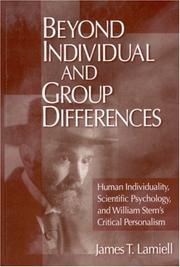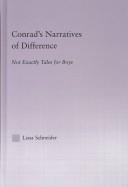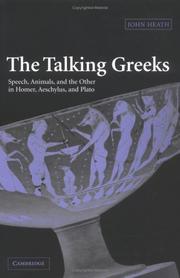| Listing 1 - 4 of 4 |
Sort by
|

ISBN: 1322418497 1452262683 9781452262680 9781452229317 1452229317 9780761921721 0761921729 9781322418490 Year: 2003 Publisher: Thousand Oaks, Calif. : Sage Publications,
Abstract | Keywords | Export | Availability | Bookmark
 Loading...
Loading...Choose an application
- Reference Manager
- EndNote
- RefWorks (Direct export to RefWorks)
The author provides book-length treatment of the concept of human individuality in 20th century scientific psychology highlighting the historical contributions made by the German psychologist and philosopher William Stern (1871-1938).
Psychology --- History --- Stern, William, --- Stern, Louis William, --- Stern, L. William --- שטרן, ויליאם, --- Difference (Psychology) --- Psychologie différentielle --- Psychologie --- Histoire

ISBN: 0415762626 1136730729 1315024454 1136730656 9781136730726 0415966779 9780415966771 9781315024455 9781136730795 9780415762625 1306215552 Year: 2003 Volume: 26 Publisher: New York
Abstract | Keywords | Export | Availability | Bookmark
 Loading...
Loading...Choose an application
- Reference Manager
- EndNote
- RefWorks (Direct export to RefWorks)
First Published in 2004. Routledge is an imprint of Taylor & Francis, an informa company.
Difference (Psychology) in literature. --- Femininity in literature. --- Literary form --- Narration (Rhetoric) --- Sex role in literature. --- Femininity (Psychology) in literature --- History --- Conrad, Joseph, --- Korzeniowski, Józef Konrad Teodor, --- Korzeniowski, Joseph Conrad Theodore, --- Konrad, Dzhozef, --- Kʻang-la-te, --- Conrad-Korzeniowski, Joseph, --- Korzeniowski, Joseph Conrad-, --- Kʻonradŭ, Josep, --- Kʻonradŭ, Chosep, --- Kʻolladŭ, Josep, --- Konrad, Dzd. --- Conrad, Józef, --- קונראד, ג׳וזף, --- קונראד, ג׳וסף --- קונרד, ג׳וזף --- קונרד, ג׳וזף, --- קונרד, יוסף --- 康拉德, --- Konrad Nalecz Korzeniowsky, Jozef Tedor, --- Konrant, Tzozeph, --- Criticism and interpretation. --- Technique. --- Difference (Psychology) in literature --- Femininity in literature --- Sex role in literature --- Psychologie différentielle dans la littérature --- Féminité dans la littérature --- Rôle selon le sexe dans la littérature --- Narration --- Genres littéraires --- Histoire --- Rhetoric --- Discourse analysis, Narrative --- Narratees (Rhetoric)
Book
ISBN: 0802005179 1487571275 9786612002953 1282002953 1442683902 Year: 1994 Publisher: Toronto : University of Toronto Press,
Abstract | Keywords | Export | Availability | Bookmark
 Loading...
Loading...Choose an application
- Reference Manager
- EndNote
- RefWorks (Direct export to RefWorks)
Siemerling concludes that the works under consideration offer heterological discoveries that maintain a productive 'negativity' (Kristeva) with respect to given knowledge and fixed articulations of self and other. The texts examined open the space between 'heterological' and 'thetic' moments of alterity. Siemerling explores Cohen's ways of eluding the self-imprisonment of a subject that names and defines the other. Cohen also uses ironic strategies in which the speaking 'I' turns against both itself and the addressee in order to confound thetic certainties. Hubert Aquin's work, responding to a Sartrean concept of alterity and the discourses of decolonization influenced by it, negotiates a historically defined Quebecois experience of domination by the other. The self-reflexive discoveries of the other in Michael Ondaatje's texts follow elusive figures that often appear adumbrated in the margins of history. In the domain of gender and sexuality, Nicole Brossard's texts similarly engage the double problematic of thetic alterity and heterology. Winfried Siemerling examines alterity in the work of four innovative postmodern authors, exploring self and other as textual figures of the unknown. Subjectivity appears mediated, in these texts, by a self-reflexive work in language, seeking to grasp itself in relation to a significant and often fascinating, but also enigmatic, other. Siemerling notes that the question of the other constitutes the opening or gap of knowledge that sets the texts in motion. Because the other shows a marked tendency to escape conclusive definition, however, an articulation of the limits of knowledge becomes the condition under which the discovering subject itself apprehends its own precarious being.
Canadian fiction --- Difference (Psychology) in literature --- French-Canadian literature --- Outsiders in literature --- Postmodernism (Literature) --- Self in literature --- Roman canadien --- Psychologie différentielle dans la littérature --- Littérature canadienne-française --- Marginaux dans la littérature --- Postmodernisme (Littérature) --- Moi dans la littérature --- History and criticism --- Histoire et critique --- Aquin, Hubert, --- Brossard, Nicole, --- Cohen, Leonard, --- Ondaatje, Michael, --- Criticism and interpretation --- Criticism and interpretation. --- Critique et interprétation --- Canadian literature --- Difference (Psychology) in literature. --- Outsiders in literature. --- Self in literature. --- History and criticism. --- Psychological aspects. --- #KOHU:CANADIANA 1999 --- 820 <71> --- 820 <71> Engelse literatuur--Canada --- Engelse literatuur--Canada --- Literary movements --- Literature, Modern --- Modernism (Literature) --- Post-postmodernism (Literature) --- Canadian literature (English) --- English literature --- Psychological aspects --- Ondaatje, Philip Michael --- Kohen, Leʼonard, --- כהן, ליאונרד, --- Koen, Lenard, --- Brossard, Nicole --- Ondaatje, Philip Michael, --- Cohen, Leonard Norman, --- Ondaatje, Michael --- Ondaatje, Philip Michael --- Französisch. --- Englisch. --- Kanada --- Canada. --- Canada (Province) --- Canadae --- Ceanada --- Chanada --- Chanadey --- Dominio del Canadá --- Dominion of Canada --- Jianada --- Kʻaenada --- Kaineḍā --- Ḳanadah --- Kanadaja --- Kanadas --- Ḳanade --- Kanado --- Kanakā --- Province of Canada --- Republica de Canadá --- Yn Chanadey --- Canada --- Puissance du Canada --- Kanadier --- Provinz Kanada --- 01.07.1867 --- -Canadian fiction

ISBN: 0521832640 9780521832649 9780511483011 9780521117784 0511111134 9780511111136 0511111460 9780511111464 0511483015 1280415584 9781280415586 052111778X 1107139309 9781107139305 0511181329 9780511181320 0511197950 9780511197956 0511299060 9780511299063 Year: 2005 Publisher: Cambridge Cambridge University Press
Abstract | Keywords | Export | Availability | Bookmark
 Loading...
Loading...Choose an application
- Reference Manager
- EndNote
- RefWorks (Direct export to RefWorks)
When considering the question of what makes us human, the ancient Greeks provided numerous suggestions. This book argues that the defining criterion in the Hellenic world, however, was the most obvious one: speech. It explores how it was the capacity for authoritative speech which was held to separate humans from other animals, gods from humans, men from women, Greeks from non-Greeks, citizens from slaves, and the mundane from the heroic. John Heath illustrates how Homer's epics trace the development of immature young men into adults managing speech in entirely human ways and how in Aeschylus' Oresteia only human speech can disentangle man, beast, and god. Plato's Dialogues are shown to reveal the consequences of Socratically imposed silence. With its examination of the Greek focus on speech, animalization, and status, this book offers new readings of key texts and provides significant insights into the Greek approach to understanding our world.
Animals in literature --- Animals in poetry --- Animaux dans la littérature --- Animaux dans la poésie --- Beast epic --- Dieren in de literatuur --- Dieren in de poëzie --- Dierenepiek --- Dierenepos --- Dierenfabels --- Dierenromans --- Dierensprookjes --- Dierenverhalen --- Dieux grecs dans la littérature --- Difference (Psychology) in literature --- Differentie (Psychologie) in de literatuur --- Différence (Psychologie) dans la littérature --- Epopées animales --- Etres humains dans la littérature --- Fables ésopiques --- Goden [Griekse ] in de literatuur --- Gods [Greek ] in literature --- Human beings in literature --- Human-animal relationships in literature --- Language and languages in literature --- Langue et langues dans la littérature --- Man-animal relationship in literature --- Mens-dier relaties in de literatuur --- Mensen in de literatuur --- Parole (Linguistique) dans la littérature --- Relations homme-animal dans la litérature --- Speech in literature --- Spraak in de literatuur --- Taal en talen in de literatuur --- Greek literature --- Speech in literature. --- Human-animal relationships in literature. --- Difference (Psychology) in literature. --- Language and languages in literature. --- Gods, Greek, in literature. --- Human beings in literature. --- Animals in literature. --- Littérature grecque --- Parole dans la littérature --- Relations homme-animal dans la littérature --- Psychologie différentielle dans la littérature --- Langage et langues dans la littérature --- Homme dans la littérature --- History and criticism. --- Histoire et critique --- Aeschylus --- Homer --- Plato --- Littérature grecque --- Parole dans la littérature --- Relations homme-animal dans la littérature --- Psychologie différentielle dans la littérature --- Langage et langues dans la littérature --- Dieux grecs dans la littérature --- Homme dans la littérature --- Animaux dans la littérature --- Plato. --- Gods, Greek, in literature --- Man in literature --- History and criticism --- Aflāṭūn --- Aplaton --- Bolatu --- Platon, --- Platonas --- Platone --- Po-la-tʻu --- Pʻŭllatʻo --- Pʻŭllatʻon --- Pʻuratʻon --- Πλάτων --- אפלטון --- פלאטא --- פלאטאן --- פלאטו --- أفلاطون --- 柏拉圖 --- 플라톤 --- Homeros --- Homère --- Aischylos --- Eschilo --- Eschyle --- Eschylus --- Criticism and interpretation. --- Homerus --- Platon --- Platoon --- Criticism and interpretation --- Hóiméar --- Hūmīrūs --- Gomer --- Omir --- Omer --- Omero --- Ho-ma --- Homa --- Homérosz --- האמער --- הומירוס --- הומר --- הומרוס --- هومر --- هوميروس --- 荷马 --- Ὅμηρος --- Гамэр --- Hamėr --- Омир --- Homero --- 호메로스 --- Homerosŭ --- Homērs --- Homeras --- Хомер --- ホメーロス --- ホメロス --- Гомер --- Homeri --- Hema --- Pseudo-Homer --- Pseudo Omero --- Homer. --- Aeschylus. --- Платон --- プラトン --- Eskhil --- Esquilo --- Aiskhilos --- Eshil --- Æskílos --- Ajschylos --- Eschil --- Esḳilos --- Äschylos --- Eskili --- Aiszkhülosz --- Eschylos --- Iskilos --- Эсхил --- אייסכילוס --- איסכילאס --- איסכילוס --- إيسخولوس --- ايسخيلوس --- Αἰσχύλος --- Arts and Humanities --- History
| Listing 1 - 4 of 4 |
Sort by
|

 Search
Search Feedback
Feedback About UniCat
About UniCat  Help
Help News
News